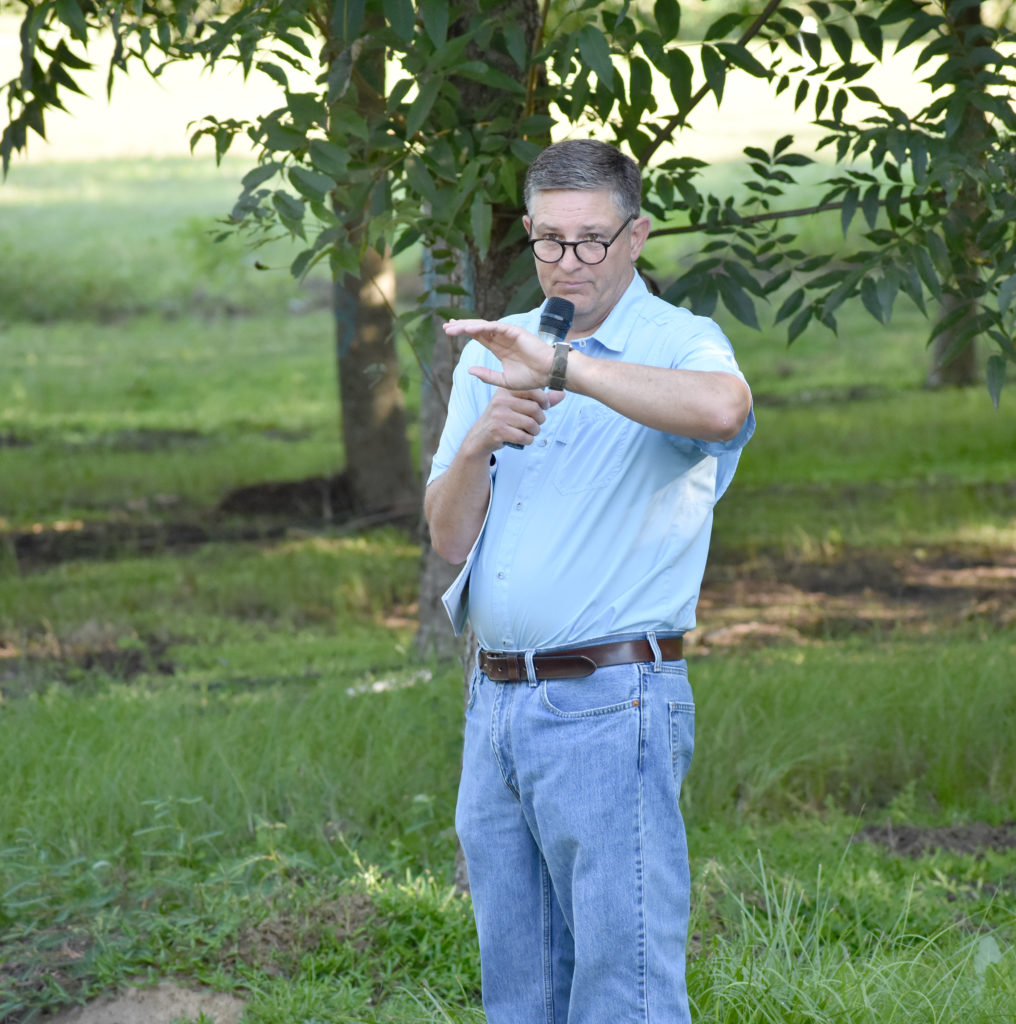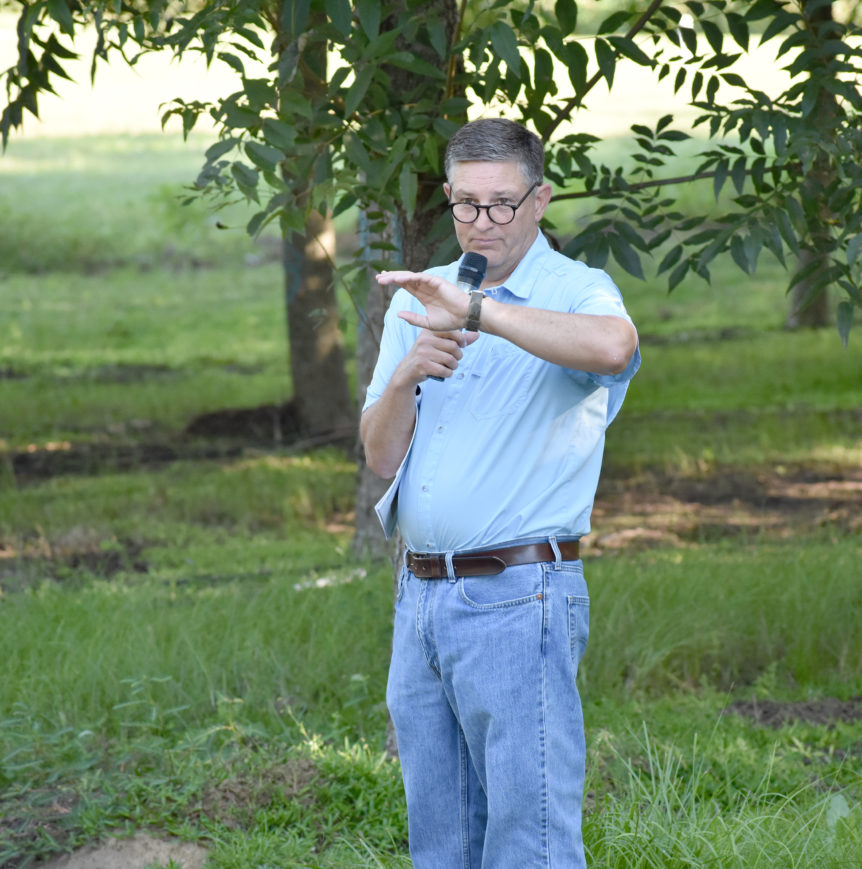
By Clint Thompson
Low input pecan varieties does not imply zero fungicide applications for scab disease. It means minimal sprays for scab-resistant varieties.
Lenny Wells, University of Georgia Extension pecan specialist, highlighted his research into low input varieties like Lakota, Excel and McMillan during the Georgia Pecan Growers Association Fall Field Day on Sept. 4 at the UGA Ponder Farm in Tifton, Georgia.
“In the low input trial we’re doing, we grow them with no fungicides there just to see if we can make them. Some of these varieties like Lakota, Excel most of the time, Avalon, McMillan; we can make those in some places without any fungicide,” Wells said. “We don’t recommend that. It allows some of those minor pathogens to jump in there on you. You don’t want that. Also, it makes it easier for the scab to move in onto those varieties. It doesn’t matter what variety we’re talking about the potential is there at some point for them to start scabbing.
“Two or three sprays on those really low input varieties will go a long way towards preserving that resistance that they have.”
Wells’ recommended spray program for those varieties include phosphite in April, Miravis Top in June and an optional Dodine/Tin in July. Research led to Lakota (seven-year average) producing 55.5 nuts per pound and 55.8% kernel.
Scab is a fungal disease that infects the leaves or nuts of pecan trees. If scab impacts the nut early enough in the production season, it can cause the nut to blacken and fall from the tree. It excels on trees that have received moisture. Some growers must make at least 10 fungicide applications during an average year to manage the disease.










